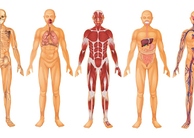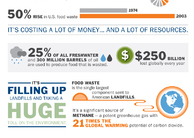Featured Opinion:Corn Subsidies Make Me Sick (and Fat)
By
2010, Vol. 2 No. 11 | pg. 1/1
KEYWORDS:
There are few government policies disheartening enough to make me lose sleep at night. But of those few, the subsidization of the corn industry is one big one, and the way in which the government continues to squander billions of dollars on a senseless policy that arguably does more harm than good, is simply outrageous. Here is the situation, in brief: The U.S. Government currently spends around $300 billion every five years on something called the “Farm Bill.” The Farm Bill, which has become known as a series of handouts to help different sectors of the agricultural industry, has often stirred controversy. Despite the fact that the bill is intended for small, struggling farmers, today many large and highly succesfuly corn farms receive a large portion of the help.So what’s so horrible about corn subsidies? In fact, there are many ways to come down hard on this policy. Aside from the fact that large, already succesful farmers are getting a major slice of this free money from our hard-earned tax dollars, the subsidies, more importantly, are supporting a product that is not market efficient. This policy of subsidizing corn farmers is also potentially bad for our health. Government handouts to corn farmers have driven down the price of corn so far that sugar has been essentially replaced as the means of sweetening our food. Instead, we use high fructose corn syrup, a substance that is much harder for our bodies to break down. The result is that the soda we drink today makes us fatter and more prone to diseases like Diabetes than the same soda made with real sugar. The same goes for any product where “high fructose corn syrup” appears in the list of ingredients (try going to the supermarket and looking at different products, you will be surprised at how many of them contain the substance). If it weren’t for corn subsidies keeping the price of corn artificially low, a purer form of sugar could be used in our foods. Corn subsidies don't just threaten our health though. Proponents of corn subsidies have, with relative succes, implanted a myth that this policy will increase ethanol production and therefore reduce oil imports and make the world a cleaner place. Wrong. Ethanol is indeed a great alternative to oil, but only when done right. The energy it currently takes to produce a gallon of corn ethanol is greater than the energy that the gallon contains. If the U.S. wants clean, efficient ethanol as an alternative to oil, here’s an idea: remove the tariffs on Brazilian ethanol so we have a cheaper way of getting the product while we transition to better ways of producing it. In fact, let’s use the Brazilian model of producing ethanol; the country runs more than half of its vehicles on pure, 100% ethanol fuel, and their way of producing it is over seven times more efficient than the American way. That’s because they produce ethanol from sugar cane, not corn. The sugar cane in Brazil is processed several times: the prime stuff is used to make high quality alcohol for consumption; the OK stuff is used to make lots of sugar; and the “junk” is used to make ethanol. With enough investment and research, the U.S. could eventually maintain a similar system where at least part of the ethanol we use would come from an economically feasible system. Don’t get me wrong: I like farmers. They grow the food that I eat, and they are a highly important part of the economy. But my government is using my tax money to give billions of dollars to large farms in exchange for a product that is bad -- both for my health, and for the economy. This injustice calls for some serious action. Particularly in times like this, when our government faces economic headwinds from every direction. And who knows, maybe the reversal of corn subsidies would contribute to making everday Americans, the backbone of our economy, healthier overall. What better time to revise a horrible policy than in the administration that prides itself on bringing change to the system. Suggested Reading from Inquiries Journal
Inquiries Journal provides undergraduate and graduate students around the world a platform for the wide dissemination of academic work over a range of core disciplines. Representing the work of students from hundreds of institutions around the globe, Inquiries Journal's large database of academic articles is completely free. Learn more | Blog | Submit Latest in Opinion |

















